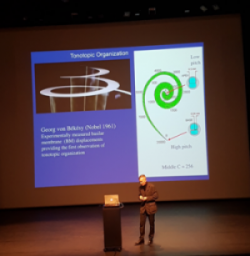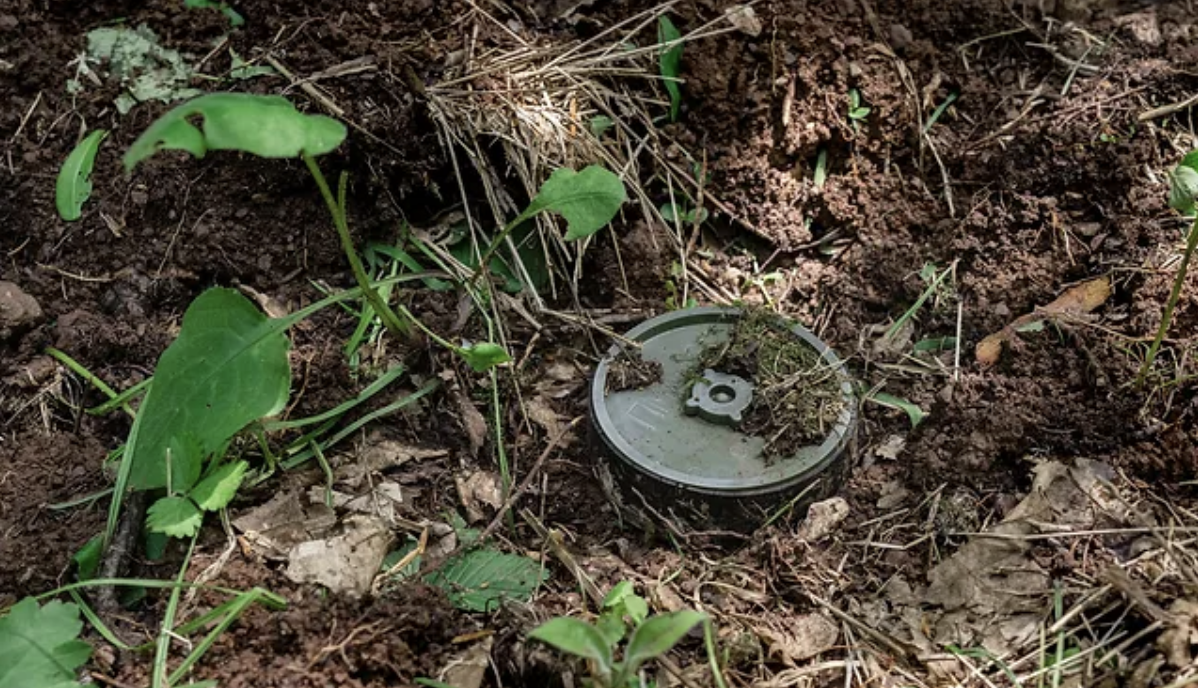By Cara Burke Year 11
On Friday the 18th of November and Monday the 21st of November, many students got the opportunity to see Ian Shipsey discuss the use of cochlear implants and the way they work to repair hearing to people, looking mainly at his own experience of using one. This for me, and I’m sure many of my peers, was a wonderful and enlightening experience.
The first thing which was addressed by him was how the ear worked, and how the cochlear implant worked. For Ian Shipsey, the hairs inside his cochlear which allowed him to hear had been destroyed by his necessary medication, meaning that within a year he had become completely deaf. The cochlear implant essentially bypassed the cochlear and stimulated the auditory nerve directly, giving Ian Shipsey a very rusty sound, but a sound nonetheless. The most fascinating part of how the cochlear implant worked was, in fact, how the brain interpreted the sound which it was given. The sound in itself isn’t one of high quality, and words are hard to make out, but the brain of someone who was once able to hear clearly which is then provided with a lower quality of sound than they used to have can create a clearer sound in their mind. Ian Shipsey described this phenomenon by telling us what happened when he listened to people from different places, for example Boston. Whether or not this person has a typical Boston accent, his brain can interpret the rusty words given to it when the person speaks as a clear Boston accent. Music, however, can be harder, as the brain isn’t interpreting words so much as just sound.
There is, however, controversy surrounding the use of cochlear implants for children who had never had the opportunity to hear, as they would not be able to reconstruct the sounds and words in their mind with no prior knowledge of how certain words and certain things sound. People have expressed concern of how these cochlear implants may hinder a child’s ability to integrate into the deaf community and properly learn how to communicate through sign language. However, it has been shown that children with cochlear implants have learned to speak to others at a faster rate than those without, though the results of these studies differ greatly from child to child.
On a personal level, to hear the sound given to the brain by a cochlear implant in comparison to the sound which our cochlear allows us to hear allowed me to appreciate just how brilliant our auditory system is in giving us such clear sound, and how wonderful it is when different fields such as biology, physics and chemistry can come together to advance technology in such a way that a device which can allow a completely deaf person to hear can be created.



